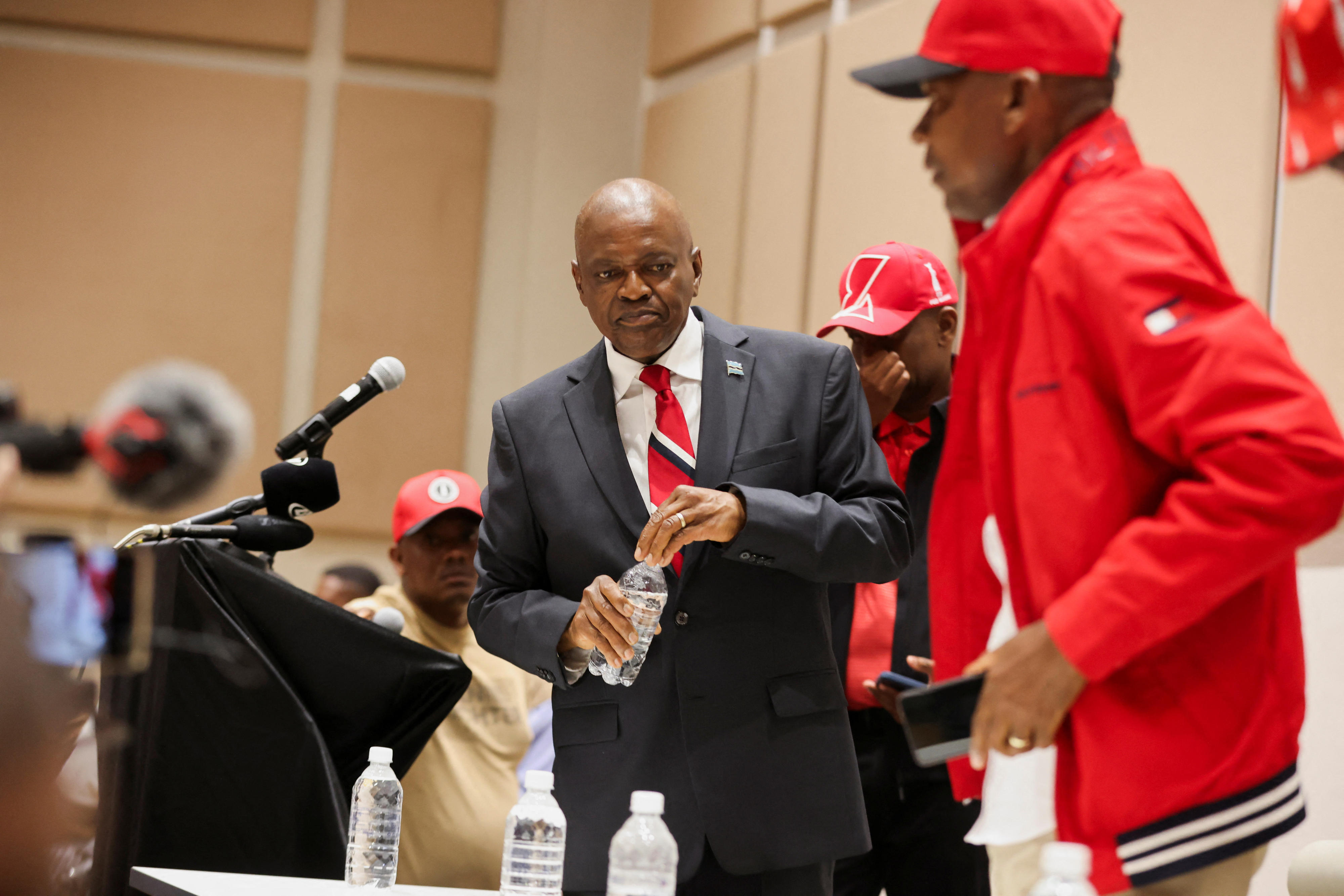Botswana votes out ruling party after 58 years in power

Botswana's President Mokgweetsi Masisi attends a press conference to concede defeat after the October 30 general elections, where the Botswana Democratic Party (BDP) lost elections to the opposition coalition Umbrella for Democratic Change (UDC), in Gaborone, Botswana November 1, 2024. PHOTO/REUTERS
What you need to know:
- President concedes defeat based on early results
- Opposition leader Duma Boko on track to win
- BDP party has been in power since 1966
- Youth fed up with high unemployment, hardship
Botswana's President Mokgweetsi Masisi conceded defeat on Friday after a shock election result that saw his Botswana Democratic Party (BDP) lose by a landslide after 58 years in power.
The president-elect is 54-year-old lawyer Duma Boko, leader of the Umbrella for Democratic Change (UDC) coalition which passed the 31-seat threshold needed to secure a majority in parliament, according to results released on state television.
"From tomorrow... I will start the process of handover, and you can count on me to always be there to provide whatever guidance you might want," Masisi said in an audio clip of his phone call to Boko, which he posted on X.
"We will retreat to being a loyal opposition and work with you for the betterment of our country," he said.
Boko has not yet spoken since the results.
Analysts said that mounting socio-economic grievances, particularly among young people, were the downfall of the BDP, which has governed the small southern African state since independence from Britain in 1966.
Botswana has largely depended on its diamonds for income, but a downturn in the global diamond market caused economic growth to plummet this year, while unemployment rose to 28%.
"After 58 years in power (the BDP) didn't have anything new to offer," said analyst Ringisai Chikohomero of the Pretoria-based Institute for Security Studies. "It was very clear that the president was really relying on incumbency."
The UDC, by contrast, put forward ambitious policy proposals, he said. It pledged to more than double the minimum wage, improve social services and create a more independent judiciary, among other measures.
State television showed that based on results from 55 of the 61 constituencies up for grabs, the UDC had won 32 seats in parliament. The BDP was in last place out of four parties, with only four seats. Members of parliament elect the president.
'WARNING' TO LONG-RULING PARTIES
Botswana is the world's top producer by value of diamonds, and the government owns a 15% stake in diamond giant De Beers, a unit of Anglo American AAL.L. Masisi last year negotiated a new deal with the company that will see Botswana get a bigger share of its raw diamonds.
Boko has not given any indication that he would want to change the deal.
The capital Gaborone was calm on Friday morning, with small groups of opposition supporters celebrating in the streets.
"I did not ever think I would witness this change in my life," said 23-year-old student Mpho Mogorosi. "The BDP had stayed too long in power and I am proud to be part of the people that removed them for a better Botswana."
The BDP was the second long-ruling party in southern Africa to suffer a defeat at the polls this year, after South Africa's African National Congress also lost its parliamentary majority following 30 years in power and was forced to form a coalition government.
Neighbouring Namibia will hold elections later this month in which the ruling SWAPO party, which has governed since 1990, is also expected to face a stiff challenge.
"The outcome of Botswana's elections should serve as a warning to long-time ruling parties across southern Africa and beyond that without economic progress and employment opportunities, political dominance will falter," said Zaynab Hoosen, an Africa analyst at consultancy Pangea-Risk.




